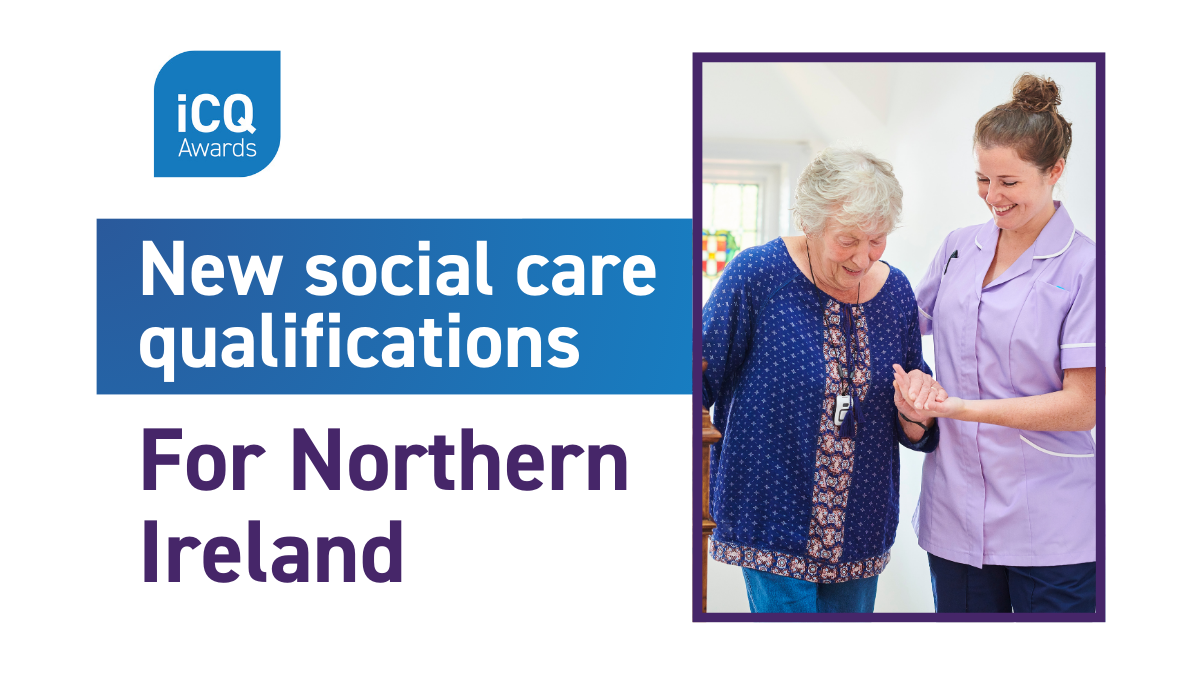Upholding standards, protecting people: safeguarding apprenticeships

Safeguarding has never been more front and centre. From schools to social care, housing to youth services, everyone is expected to know their safeguarding responsibilities and be proactive in their efforts to protect people who are vulnerable.
Frontline roles demand professional judgement, resilience, and empathy. Decisions made by these practitioners can literally change lives. That’s why the Level 3 Safeguarding Support Officer apprenticeship is more than just training, it’s a vital pathway to professionalising and reinforcing safeguarding efforts across the UK.
As an End Point Assessment Organisation (EPAO), our job is to work with learners and employers to ensure apprentices prove they can safeguard in real life situations, dealing with challenging environments to protect those in need.
Safeguarding in context: trends and pressures
Safeguarding today is more complex, more visible, and more scrutinised than ever before.
Risks are overlapping and evolving: grooming via social media, domestic abuse, self-neglect, radicalisation, and more. Professionals need legal literacy, emotional intelligence, and sometimes a sixth sense for when “something feels off.”
Policy continues to raise the bar, with guidance and regulations underscoring expectations on employers and providers. Whilst there are some key legislative and regulatory guidance such as Keeping children safe in education, Working together to safeguard children, the Education and Training (Welfare of Children) Act 2021 or Safeguarding policy: protecting vulnerable adults, organisations across the service landscape such as NSPCC and CQC regularly update their guidance and advise as best practice emerges.
Regulators like Ofsted and the CQC will focus on the policies and procedures that underpin safeguarding efforts, but they will also be looking at embedded practice across the organisation – meaning that organisations will need to display a commitment to raising awareness of the importance and responsibilities of safeguarding across all staff members.
Dedicated apprenticeship pathways that embed learning in practice and elevate the standard of safeguarding capability are a key way for organisations meet these growing demands.
What is the safeguarding apprenticeship standard?
The Level 3 Safeguarding Support Officer apprenticeship learning journey typically runs for 18 months and equips practitioners for roles such as safeguarding advisor, safeguarding assistant or safeguarding coordinator. It’s commonly used in education, health, social care and voluntary sectors, but applies anywhere where organisations have a duty of care to safeguard individuals.
The core duties of somebody undertaking this apprenticeship will include:
- To act as a first point of contact for safeguarding concerns.
- Understand and apply safeguarding legislation and organisational protocols.
- Triage concerns and escalate serious cases.
- Handle allegations involving staff with discretion and confidentiality.
- Share information appropriately in line with safeguarding, data protection and legislative guidelines.
- Maintain logs, prepare evidence, and contribute to meetings and audits.
- Support colleagues with safeguarding decisions.
- Work across a multi-agency environment with external bodies as appropriate to safeguard individuals in all areas needed.
- Help manage safeguarding caseloads and participate in reflective practice.
Throughout all their work, apprentices will be trained to behave with empathy, integrity, resilience, professionalism, fairness and discretion – merging people skills with the professional standards. In safeguarding roles, individuals are not only supporting roles, but they need to embody the values and principles and champion the importance of safeguarding.
It is an incredibly rewarding employment pathway that attracts passionate and committed individuals who will work to protect the people around them in times of need.
End Point Assessment: why it matters in safeguarding
You can’t fake it ‘til you make it in safeguarding.
The EPA is the final, independent evaluation that confirms occupational competence. For this standard, the apprentice undergoes:
- A presentation followed by Q&A
- A professional discussion, underpinned by a portfolio of evidence.
These are designed to reflect real working life: unpredictable and requiring sound judgement when policy meets people.
As an EPAO, we must ensure this process is fair, rigorous, and trustworthy. We make sure that individuals can think under pressure, act ethically, and stay grounded in safeguarding policy as situations evolve.
As independent assessors, we are removed and objective about the apprentice’s workplace and workload. This gives us a unique viewpoint to assess their competence.
We invest in assessors with lived safeguarding experience, not just academic accreditation. These professionals understand pressure, nuance, and consequence.
We prioritise trauma-aware and ethical assessment processes. Safeguarding content can trigger personal experiences, so we ensure empathy, consent, and support throughout.
Even though apprentices may come from the bustling streets of Manchester or the Cornish countryside, our standards are consistent, yet our assessments are context-aware, fair, and inclusive.
Where it’s working: safeguarding apprenticeships in action
- Local authorities are embedding apprentices in early help and safeguarding services to build multi-agency capacity from within organisations.
- Education providers are using the apprenticeship to professionalise support across learning centres, building protective cultures and ensuring the safety of both young people, those with special educational needs and disabilities, and adult learners in educational environments.
- Housing associations train tenancy support officers to detect and respond to risks such as financial exploitation, domestic abuse, and mental health crisis.
- Charities and youth services use apprenticeships strategically to develop trauma-informed safeguarding staff, many of whom bring lived experience themselves.
- Healthcare providers, including NHS trusts, are embedding apprenticeships in adult and child safeguarding roles to maintain care, capacity, and quality.
Safeguarding is a professional calling that requires competence, courage, and ethical clarity. The Level 3 Safeguarding Support Officer apprenticeship offers a structured, rigorous route into this area of work.
With a long history in social care, healthcare and education and training we’re pleased to be approved to deliver assessments for this apprenticeship standard. We stand ready to support any organisation who are ready to onboard safeguarding capability into their operations.



